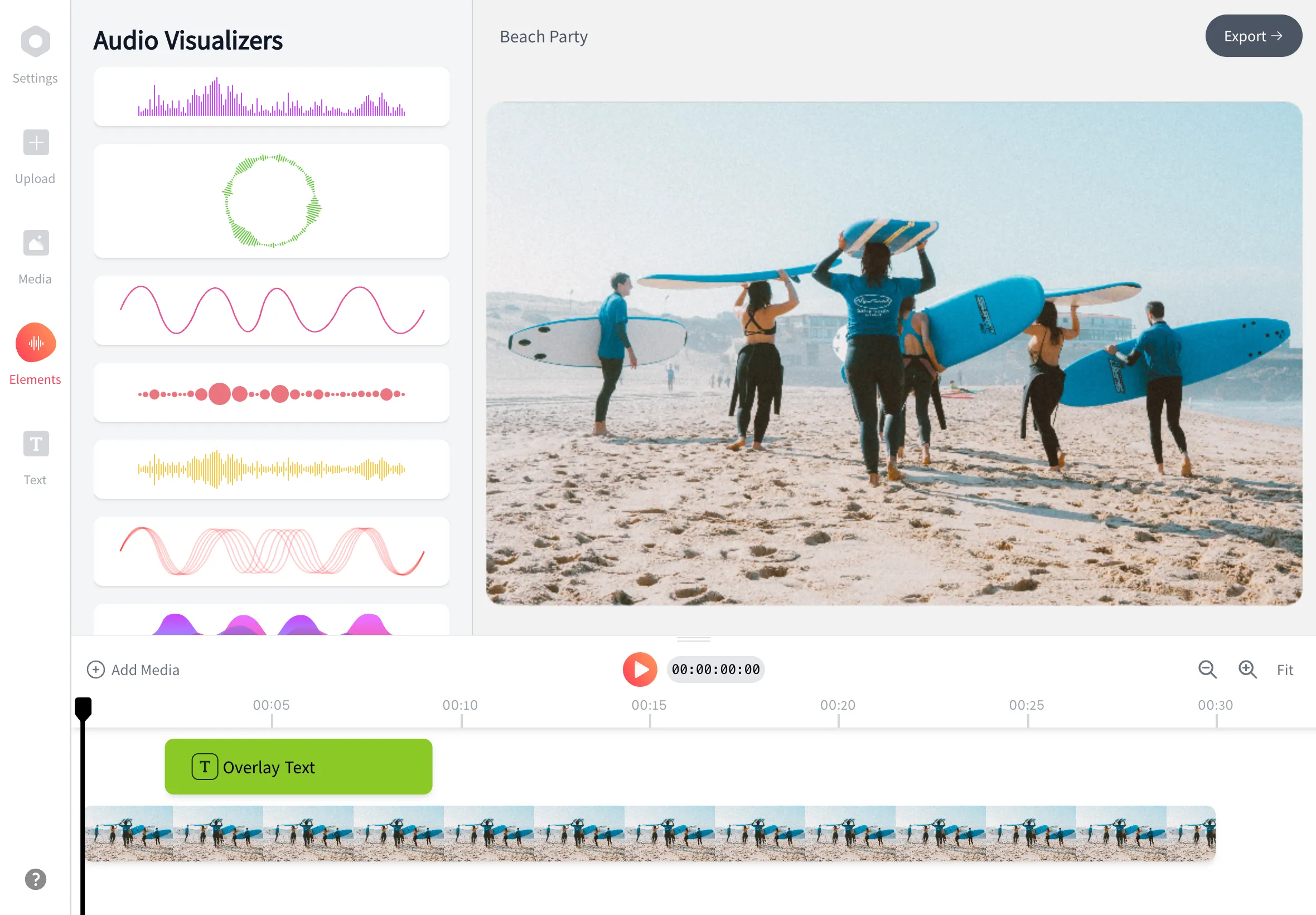How to Boost Your Podcast SEO: The Ultimate Guide
Starting a podcast takes time and effort. You have to decide what topic you want to cover, research, and identify any existing competition, and then figure out how to set yourself apart!
With the right approach, you can produce unique, original content over and over again. But what happens when no one seems to be listening? How do you gain visibility and draw people to your podcast channel?
The secret to reaching more listeners is podcast SEO, but if you don't know what that means or what it takes to optimize your audio and text content, the concept of SEO can be baffling! If you want to learn how to take your podcast channel to the next level or ensure you start correctly, this article is a must-read!
How Does Podcast SEO Work?
At its core, Podcast SEO, or search engine optimization, is the process of making your quality content easy to find on search engines. The most common place to search for items is Google, which means understanding Google's SEO standards can be an excellent place to start.
But, as a podcaster, you'll also need to learn how to navigate Apple Podcasts, Spotify, and whatever other platforms your podcast lives to reach listeners because each will have a search feature. The basis for any search engine starts with you taking your content and optimizing it, so it flags the appropriate audiences and lets them know you exist.
While you'll need to focus your optimization on SEO for your podcast as a whole and SEO for each of your podcast episodes, there are several other areas you'll need to consider. Your podcast rankings will vary as your content is broken down into different categories. When search engines scan your website or podcasting platform, each area will be examined and ranked individually.
An Overview of Podcast SEO Concepts
When it comes to optimizing your podcast channel and episodes, it can help understand standard terms you may encounter. When you better understand these common concepts, the whole process of boosting your SEO will become much easier!
Keyword Research
The process you go through to select the right keyword or key-phrase aligned to your content is your keyword research. The keyword or phrase you choose should be in line with what people would search for in the search bar, and your content should be the perfect answer to their question.
Titles and Headings
It would be best if you based your channels titles and headings on your keywords and content. Good titles are focused on optimization, so it's easy to find on search engines, podcast platforms, and anywhere else your content might live.
Internal Links
The more content you create on your website, the more you can refer back to yourself with internal links that direct your listeners to other content. This process helps elevate you as a leading source for your information and boosts your SEO ranking.
Cornerstone Pieces
The more content you produce, the more apparent it will be what your most popular or cornerstone pieces are for listeners. If people are interested in a particular topic, expand on it, and help them come back repeatedly to learn more.
Content Optimization
The way you optimize your headers with keywords and efficiently sprinkle in related keywords will help optimize your content, both audio and text. Understanding what your listeners want from you will help you better provide your listeners with the information they want most!
Advanced Podcast SEO Strategies
The more you build your podcast and fine-tune your processes, the more competitive your research can be over time. You can start to focus on building external links using different analytical tools that target your SERP (search engine result pages) ranking.
Best Practices for Podcast Channel SEO
The best SEO podcasts are focused on what their channel has to offer and then boiling that content down to pull out important details that can help listeners find them. If you want to increase the number of people that see your podcast, this is the best place to start!
1. Identify Your Keywords
What is the topic that best describes your podcast? More specifically, what terms would a listener type into the search bar if they wanted to find your content? Whatever your specific topic is for your podcast as a whole and then for each episode are your keywords .
If your podcast is on a highly saturated topic, find ways to make your topic unique to narrow down your competition and increase the likelihood that they find your channel. For instance, if your podcast is about weight loss and healthy living, perhaps you can focus on the Mediterranian Diet or low-impact fitness tips. The keywords you use should be something you can carry through your channel and then repeatedly build off.
2. Podcast Title
If you're starting a new podcast from scratch, take some time to create a creative and fun title, and clearly state your podcast topic for listeners. Using creative puns or your unique specialty is a great way to set yourself apart from your competition.
If you already have a title for your podcast that is a little unclear about what makes your channel unique, you can add some clarity by including a subtitle. For instance, if your channel is called something generic like "Healthy Living," your subtitle could be "Your Guide to the Mediterranian Diet and Low-Impact Fitness" to help clarify your niche and make your subject matter clear.
3. Podcast Descriptions
For your podcast SEO, the descriptions are crucial because they give your listener a glimpse of your channel's details and unique aspects. To create powerful descriptions, you should include your main keyword, utilize essential tags, and optimize your title to help listeners find your podcast on whatever platforms you're on.
4. Create a Website
If you have a podcast but not a website, you should fix that as soon as possible! Having a website lets you grow your audience by offering email notifications for new content and giving your SEO a massive boost. Google can more easily index your channel when you're regularly posting related content in one place and then sharing it on the different streaming services.
5. Transcriptions and Show Notes
Every time you post a new episode, you should also include episode notes like a full transcription of the audio or a summary in the form of show notes. Transcriptions are a great way to give your listeners a reference document that includes everything that you talk about in your episodes so they can look back or help clarify parts that they may have missed.
Show notes , on the other hand, can be personalized to suit your needs. You can include timestamps with important retails, a summary of information, contact details if your episode is an interview with a guest and anything else that you think might be important to your listeners. You can also build an internal linking strategy to develop more content to help refer back to other episodes for more information.
Best Practices for Podcast Episode SEO
Popular podcast episodes start by having great content and then actively working to earn listeners whenever possible. Just like optimizing your channel is essential, every episode allows you to reach new audiences and build your listener base.
1. Episode Specific Keywords
Keywords are crucial to connecting with listeners at every level of your podcast. Each episode has a unique theme, so the keywords you include in that episode should be channel-specific and then episode specific to trigger as many searchers as possible.
The keyword you choose as the focus for each episode, and it's best not to use the same keyword for each episode. Even if your episodes are based on the same topic, the more targeted keywords you choose, the broader your reach will be as different terms are entered into search bars.
2. Episode Titles and Descriptions
Like optimizing your podcast title, each of your episode titles and descriptions should be carefully crafted to include your keywords. The titles and descriptions you write for your episodes should be clear and descriptive to ensure the clicks you receive are those who are most likely to listen to your content. Your keyword should be included word-for-word in both places to rank.
3. Say Your Keyword in the Episode
Google's new algorithm update means that it can now listen to your episodes to find your keywords. Saying your keyword at least once in your recording and tying it together in the title, description, and content, will help you flag your episode multiple times.
That said, be cautious of " keyword stuffing ," or speaking and writing your keyword over and over again. Doing this will reflect negatively on your ranking. Instead, sprinkle it in where it's natural for the best results.
4. Social Media Promotion
There is a direct correlation between how much engagement you have on social media and your SERPs rankings. The more the public engages with you on social media by liking, commenting, and sharing, the more reputable your podcast will become. Search engines favor SEO rich, proven reputable content because they want to help people find the best answer for whatever they're researching.
Podcast promotion starts by:
- Searching for important hashtags
- Regularly posting content on the social media accounts your target audience uses most
- Providing easily shareable content on your website and podcast content
- Creating evergreen content that can stay relevant long term.
You can also identify and refer back to cornerstone episodes as you expand on different topics to enrich their experience.
How to Focus on SEO When Structuring Your Episodes
Depending on your podcast style, your recordings might feel like a casual conversation or formal instruction. Because of this, you're able to create a recording style that suits your style best for each episode.
What questions are you trying to answer for your listeners? How can you offer this information in a new way or perspective that hasn't been covered yet?
Maintaining a good flow and a steady release schedule starts with understanding your specific goals for your podcast and how you can optimize that in each episode design.
It's easier for search engines to understand your podcast's content and how to index your episodes if you think like your audience and what they may expect from your channel. Implementing a clear theme will help you maintain focus and identify critical keywords for SEO, so you don't get lost among your competition.
How to Advertise Your Podcast
When you're just getting started with your podcast, getting listeners is vital to keeping your channel alive! While SEO is crucial, it's also essential to regularly advertise your channel to connect with new customers and expand your reach.
Some useful strategies you can try out are:
- Inviting guests to your show and leveraging their audience and followers
- Advertise on various social media in different ways
- Have a few episodes ready to go before you launch your channel
- Convert audio to video to allow you to share in different ways
- Transcribe the audio or create show notes
- Make connections and find partners who will mention you and your podcast
- Be a guest on other podcasts
Where to Start
Now that you thoroughly understand podcast SEO, it's time to get a game plan in place to help you move forward confidently and successfully! Start by creating a podcast title that is unique but clearly states what you have to offer. Then make sure you have enough content to have a strong launch right out of the gates.
If you already have an existing podcast, take some time to revisit your content to ensure everything is aligned. If you don't have a website, make one and include transcriptions or show notes to optimize your content. Take time to research keywords that suit your need and can help you gain visibility.
If all else fails, check out what other podcasts based on the same content are doing and where they're advertising. Make sure you market your episodes on social media and study your traffic data to see how many people visit your podcast or website!
For more information about creating a successful podcast, check out our helpful guides ! If you want to learn how to convert your audio podcast files to video so you can post your content, even more places, create a free account , today!
Ready to get started? We have a free plan!
No credit card required, our free plan includes a small Echowave.io watermark.
Get Started →







